.jpg?width=800&name=board-electronics-computer-data-processing-50711%20(1).jpg) The Information Age, the Digital Age, the New Media Age… whatever you call the era we’re living in, one thing is certain: it’s never been a more fascinating time for lawyers to delve into the world of technology transactions and data privacy law. We quizzed some of the attorneys who specialize in these areas about how they made the switch.
The Information Age, the Digital Age, the New Media Age… whatever you call the era we’re living in, one thing is certain: it’s never been a more fascinating time for lawyers to delve into the world of technology transactions and data privacy law. We quizzed some of the attorneys who specialize in these areas about how they made the switch.
Take A Chance On Tech
“Everyone thinks that every firm or every company is the same, but a firm focused on privacy or tech is very different than one focused on private equity.” [Josh Bilgrei]
Most lawyers spend their days toiling away on transactions for companies in stodgy, Old World industries. If learning about your client’s business feels like the billable equivalent of Ambien, perhaps it’s time to start working for clients on the cutting edge. Whether it’s the development of autonomous vehicles, the launch of the hot new app that everyone is talking about, or start-ups building the tech and disruptive business models that are taking lumbering, old-fashioned incumbents by storm in virtually every industry (AdTech, FinTech, PropTech, CleanTech, BioTech, EdTech and more), there are teams of lawyers specializing in technology transactions and data privacy who help those companies navigate regulatory thickets and bring those technologies to market.
Does this practice area pique your interest? John Wolf Konstant is a senior consultant at Whistler Partners, a recruitment firm that specializes in tech and intellectual property. Konstant says that when associates decide to make a move, there’s a big tendency for them to target in-house moves only, rather than first going to a tech-focused firm. “If you bring up the possibility of an intermediate stop at another firm, their response is generally negative, as they are convinced that it will be ‘more of the same,’” he tells us, adding, “what I think these associates discount, and what we try to communicate, is the value of the additional training they will receive, focusing on a specific industry.” Fellow recruiter Josh Bilgrei agrees: “Everyone thinks that every firm or every company is the same, but a firm focused on privacy or tech is very different than one focused on private equity.”
According to the folks at Whistler, these kinds of generalizations are misplaced but ubiquitous amongst associates. When Sean Burke, founder of Whistler, encounters this kind of associate – one that has never made a lateral move and only wants to go in-house – he often points to Adam Shevell’s story as an example. Shevell is a partner in the tech transactions group at Wilson Sonsini Goodrich & Rosati, but prior to his move to the firm, he saw himself remaining in BigLaw for only two years – at most. Instead, “every year since I moved to Wilson Sonsini, I’ve looked back and said, ‘I like my job more than a year ago, I’m having more fun than a year ago, and I’m getting to do more cool things than a year ago,’” he tells us. The shape of his day depends on the clients at hand: “It could be two founders who are just incorporating, where I’m working more as an advisor to help hold their hands through the initial stages of getting their company together.” At the other end of the spectrum, he works “with public companies on more complex transactions, where they’re negotiating with other Fortune 100 companies and need a hired gun to execute under pressure.”
"I get to learn about all of these innovative technologies and help my clients succeed at the same time – it’s just an awesome way to earn a living.” [Adam Shevell]
Before joining Wilson Sonsini, Shevell worked in the IP transactions group of a New-York-based BigLaw firm, but despite having this experience, Burke explains that “not all of the work he did was going to be relevant for a firm with a standalone tech transactions practice focused on working with companies rather than investors.” Such a stand-alone practice, Burke tells us, does work that is much more similar to what lawyers do in-house at larger tech companies than to what IP lawyers do at many large law firms. “When you are in-house at Google, you draft and negotiate the software licensing agreements yourself. When you are doing IP at most BigLaw firms, you’re more likely to be reviewing software licensing agreements as part of an M&A deal, rather than drafting them. When you’re in-house, a business person asks you an IP question, and you give them an answer. As an IP lawyer at a big Wall Street firm, more often than not it’s an M&A partner asking you questions, not the client directly.”
Burke helped Shevell overcome the challenge of not having 100% transferable skills throughout the interview process: “We were able to navigate that reality in such a way that he didn’t have to step back in class year, but could also be successful and hit the ground running at his new firm.” As far as Shevell is concerned, there’s plenty to love about his job, but perhaps the number one? “I love being around innovators who are constantly looking for new ways to do things in the world. I get to learn about all of these innovative technologies and help my clients succeed at the same time – it’s just an awesome way to earn a living.”
"The best tech transactions lawyers become embedded in client organizations and are routinely called upon to handle repeat engagements." [Dan Mummery]
The scale and diversity of innovation and technological development not only keeps things interesting but“with such a wide spectrum of matters: IP, licensing, services, procurement, and contract manufacturing to name a few, or whether it’s buy-side or sell-side, tech transactions are the perfect space to become indispensable to a wide range of clients.” That’s the view from Dan Mummery, former co-chair of Gibson Dunn’s strategic sourcing and commercial transactions group, and now a Whistler Partners consultant. "The best advice I ever got as a young lawyer was ‘find someone and become indispensable to them, make them feel like no matter what they need, it’s got your name written all over it.’The best tech transactions lawyers become embedded in client organizations and are routinely called upon to handle repeat engagements." He adds: “Not every matter may make the front page of the Wall Street Journal but they’re all important and can be the difference between business success or failure.”
“At this point, there’s a ton of overlap between AdTech and privacy.” [Tanya Forsheit]
Another lawyer who found their niche is Tanya Forsheit, chair of the privacy and data security group at Frankfurt Kurnit Klein & Setz, which represents brands, agencies and publishers. “As technology has changed, my group now has a very healthy diet of AdTech transactions where we counsel them on the privacy side,” she says. “At this point, there’s a ton of overlap between AdTech and privacy.” She’s just as enamored with the level of innovation she gets to see in the industry: “I’m kind of in the middle of things that are literally changing day by day right now as far as data goes. It’s really exciting and also terrifying.”
How so? “During the day I may be working through difficult issues about how to fit the law to a particular business use case, and then I go home and watch the news reports of all the terrible things that happened that day with privacy breaches and misuse of data.” In spite of this, Forsheit knows there is a lot of misplaced fear and paranoia when it comes to data privacy: “I would love to change the disconnect between the way that the world-at-large understands privacy issues, and the way that things like the internet really work.”
This Time It’s Personal
Ask a lawyer what they love about their job, and chances are you’ll hear this: helping clients solve tough problems. “As a tech transactions lawyer, clients are looking to me to understand how their product works and then help them apply the appropriate legal and business framework with that deep understanding of the product front of mind,” Shevell says. “I can’t do my job well for them if I don’t really understand how their product works.” Tech lawyers experience the satisfaction of getting to grips with innovative technologies through their clients, “whether they’re developing apps, putting autonomous vehicles on the road, selling consumer electronics or developing e-commerce/fintech technology.”
The nature of this kind of client base shapes the lawyer-client relationship too: “When working with small startups, you’re dealing with the co-founders or first legal hire, as opposed to Vice President, Legal for North America at a large private equity firm,” Shevell says. “And the stakes for the individuals I work with at the companies are very different. I get to be part of the ongoing relationship and the development and growth of the company itself, rather than advising one investor selling an asset to another investor.”
As a trusted advisor, the nature of those relationships extends beyond early stage startups as well. As Dan Mummery reflects on his own career: “I routinely interacted with a wide range of client constituencies including legal, finance and business units. I loved the challenge of resolving sometimes seemingly irreconcilable priorities and interests. To make a transaction work, a good tech transactions lawyer will present options and find acceptable solutions for all stakeholders to deal with critical business requirements while balancing risk and cost."
“When you’re personally invested, you may feel more stressed at times, but you also feel more exultant when you’re able to help your client accomplish those things." [Alex Khachaturian]
It's something that Alex Khachaturian also relates to. As an associate in the tech group at Gunderson Dettmer in New York, he works with startup companies every day. Previously he was a litigator, and he recalls “in a job like that in a big firm, as a young attorney, you’re not getting much regular contact with clients unless, say, you’re preparing them for testimony.” In his current role, “they call me directly to ask me questions about their business – can we do this? How can we do that? What’s the best way to do this? I like that immediacy and really enjoy helping clients get things done in the world outside the courtroom.”
As with everything in life, it’s a combination of upside and downside though, as he explains: “Entrepreneurs don’t work conventional schedules, and neither do we. You’re helping them as they bring a company up from very early development to a place where they’re going to seek a significant capital infusion to do something really special or ambitious, or they’re in the final phase to exit and sell this thing they’ve spent years creating.” That can be incredibly exciting for a lawyer, Khachaturian says, but those high stakes can make the work “more intense.” Lawyers in this space feel both extremes:“When you’re personally invested, you may feel more stressed at times, but you also feel more exultant when you’re able to help your client accomplish those things,” Khachaturian explains, “and it’s satisfying in a way that lawyers in other practices may not get to experience.”
Circuitous Paths
To crack into a practice area that has innovation at its heart, these lawyers had to be innovative themselves. Take Forsheit as one example. She tells us that back in 2006, “I was one of a very few crazy people at the time who thought privacy law was a good idea for a career.” As a litigator, Forsheit carved out an intentional path for herself – building on the work that arose when states started passing data breach laws for example, and even helping a partner at her previous firm to write a book on privacy law. When she eventually decided to leave, “firms didn’t really see a business opportunity in privacy at the time, so I knew I had to be entrepreneurial.” She ended up starting her own privacy boutique in 2009.
Before she joined Frankfurt Kurnit Klein & Setz, Forsheit had her fair share of dud recruiters: “I had recruiters lying to partners about the size of my book to the point that one firm said they wouldn’t have even met with me if they knew what my book actually was.” This kind of behavior sounds familiar to Shevell too. “As an associate at a big NYC law firm, you get a regular inbox flow from recruiters: ‘Hey, I’ve got an opportunity here, I’ve got an opportunity there, want to send me your résumé?’ The whole thing rubbed me the wrong way,” he says. “I thought, if that’s how you’re trying to find your candidates, how much effort are you actually going to put into looking after my best interests when I go out there to interview?” As Shevell puts it, “Like choosing a law firm, choosing a recruiting firm and a recruiter is really about fit.” For all three of our lawyer interviewees, it was Whistler Partners that fitted the bill.
One person who understands the importance of the right recruiter very well is lawyer-turned-recruiter, Josh Bilgrei. Before joining Whistler Partners, he spent ten years as an attorney in New York doing private equity and M&A. Subsequent moves saw him go in-house to a Fortune 500 tech company, and then to advertising company Publicis, where he handled digital media, social media, and AdTech deals. “I’m super familiar with this world,” Bilgrei says, “which I think helps Whistler Partners really understand the space because most of the issues that everyone deals with are issues that I dealt with myself.”
“Consider how the move contributes to the story of your career and professional development.” [Wolf Konstant]
Fellow recruiter John Wolf Konstant started his career at Cleary, where he worked with financial institutions, Fortune 100 companies and even foreign governments. After that he joined an AdTech company, first as a corporate counsel and then as General Counsel – but up until that point he hadn’t had any tech-specific experience. “I was lucky that the GC who hired me recognized my potential,” says Konstant. His own experience motivated him to move into recruiting. Konstant recalls that when he was a GC, the type of candidate that appealed most to him was “someone who had made a directed move, whether in-house or to another firm, to gain the experience necessary to hit the ground running in the new role.” Konstant acknowledges that even though his own experience hadn’t mapped out that way, this is the harsh reality: “when you are very busy and have limited resources, you are looking for immediately transferable skills, as well as an indication that the candidate understands what you are doing and has made efforts to move into that space.”
But if it isn’t immediately obvious how your experience is transferable, Konstant has this advice: “Consider how the move contributes to the story of your career and professional development.” This is exactly what Khachaturian had to do to land his position at Gunderson. His role now centers mostly on commercial and IP-related counseling and contract negotiation: “We are essentially outside general counsel to many different clients, all of whom are in the tech space but are doing very different things.”But the path that led Khachaturian to Gunderson had been “circuitous.” He’d started as a litigator at a BigLaw firm, worked for an offshore asset management company in Dubai, and had a stint at a fledgling healthcare payment platform start-up.
"The person who doesn’t want to be a partner at a Wall Street firm might actually enjoy being a partner at a high-end boutique whose specialty is privacy and advertising, or at a tech firm with a standalone IP group." [Sean Burke]
Such a cocktail of experience was an unconventional sell to a law firm, as Khachaturian well knew: “Law firms are by their very nature risk averse places, and when hiring, they typically look for someone who has gone down a very familiar path.” At his previous firm, he had done some IP litigation, but that had little to do with the tech transactions practice he came to want. “Bridging that gap required a lot of work,” he explains. Come interview time, Burke remembers “Alex went into it like he was preparing for trial, with that litigator’s mindset.” Together, Burke and Khachaturian repackaged his prior experience: “We talked about the commercial, licensing and privacy work I’d done to prepare myself for tech transactional work, and the mindset change I’d had wanting to move from a Wall Street firm and a practice like litigation to a firm representing startups in the tech transactional space.”
If you’re having a mindset change of your own, have a think about this nugget of wisdom from Burke: “It’s just a very different kind of practice, such that maybe the person who doesn’t want to be a partner at a Wall Street firm might actually enjoy being a partner at a high-end boutique whose specialty is privacy and advertising, or at a tech firm with a standalone IP group.” As Shevell says: “I never thought I’d be a partner at a law firm, but as the data came in year after year, it was an obvious choice for me to stay.”









